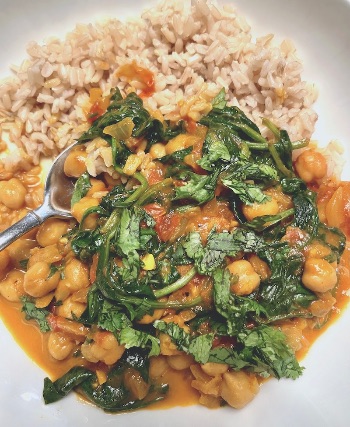Ingredients
- 12 ounces asparagus, woody ends trimmed
- 2 bunches scallions, trimmed of dark green parts with roots intact
- 2 tablespoons extra-virgin olive oil, plus more for drizzling
- Kosher salt and freshly ground black pepper
- 2 head-on whole branzino, gutted and scaled (1 to 1 1/2 pounds each); or 4 skin-on fillets of approximately the same size and shape (about 4 to 6 ounces each)
- 2 teaspoons minced garlic
- 1 lemon, thinly sliced, plus lemon wedges for serving
- 8 sprigs flat-leaf parsley (plus extra for garnish)
- 4 sprigs thyme, rosemary, or oregano (plus extra for garnish)
- Flaky sea salt
Instructions
- Position rack in middle of oven. Preheat to 450. Line a sheet pan with parchment paper.
- Place asparagus and scallions on parchment-lined pan. Drizzle with 2 tablespoons oil, season with ½ teaspoon salt and a few grindings of black pepper. Shake pan lightly to coat.
- Pat dry fish dry and drizzle both sides with a little olive oil. If using whole fish, season inside and out with salt and pepper and stuff the fish cavities with garlic, lemon slices, and herb sprigs. If using fillets, sprinkle the flesh side with salt and pepper and cover two of the fillets evenly with the minced garlic, lemon slices, and herb sprigs. Lay the remaining fillets on top of each, flesh side down.
- Set reassembled fish on top of vegetables. Transfer pan to oven and roast 12 to 15 minutes or until the fish skin starts to blister, flesh turns opaque, flakes with fork.
- Remove from oven and let rest 5 minutes. (Fish will rise in temperature a few degrees out of oven, so don’t overcook.)
- Garnish fish and vegetables with extra herbs and serve with lemon wedges for squeezing, olive oil for drizzling, and flaky sea salt for sprinkling.
— Susan Puckett is an Atlanta-based food writer and cookbook author.


